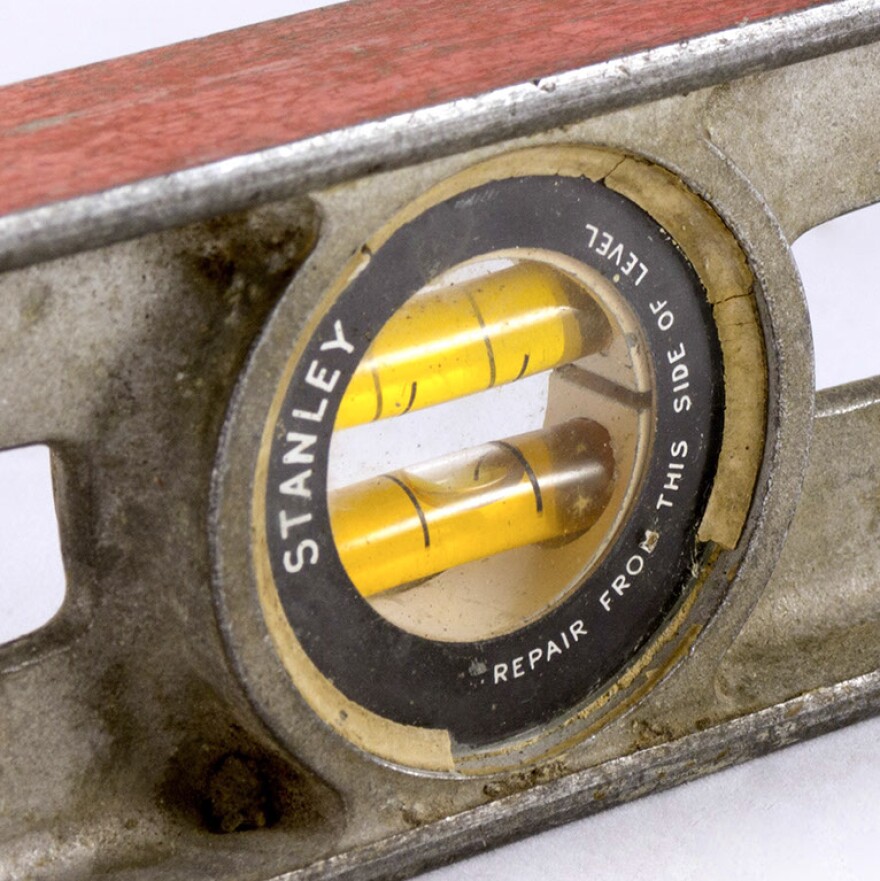a terzarima for the New Britain Industrial Museum
Hard hittin' New Britain, some of my students intone
to describe their home for a few years or a lifetime
in that depressed part of Hartford County once known
by relics in unphotographable pre-European times
as a fertile hunting and fishing ground by the Tunxis,
Quinnipiac, Wangunk, Podunk and Mattabesett tribes
who chipped arrowheads from coarse-grained schist,
naming the land Pagonischaumishaug, or White Oak Place,
though to say this in class, please professor don't flunk us
if we can't pronounce that, is what with a straight face
I get in response to evoking memories of these stewards
who seemingly have vanished without the faintest trace.
When English puritans left the King in droves towards
a place they could freely practice their religion without
persecution, they claimed that what they had explored
was discovery, and their own, no need to hammer out
a treaty by the ember of tallow candle or oil lamp,
it was theirs by divine fiat, till flash flood or drought
might eradicate them. So they settled a permanent camp.
Others followed, hemmed in by the Lamentation Mtns.
calling the region outside Hartford the "Great Swamp."

Two Scottish brothers set up shop, men with countenances
like the Amish we are lead to believe, tinners by trade
who'd import metal from Boston to make plates, buttons,
and spindles to sell on the road, transported and displayed
in a hand-cart. The original Yankee Peddlers, now a pawn
shop on Main Street where you can buy an used suede
jacket and a four-string, then eat lo mein at a faux-Sichuan
take-out down the road. By 1806, Eli Terry had the first
clock factory in America cranking out a large spawn
of interchangeable parts made of brass, and he dispersed
hawkers to sell the wares, thus evolving manufacturing.
Their recent farmer ancestors may well have cursed

their dumb luck to have been born toiling and fracturing
the soil by plow, when their grandchildren's grandchildren
shaped wire, wrought iron into shutter hinges, picturing
themselves as citizens of "Hardware City," no longer sylvan,
but proudly urban, even starting to produce ball bearings.
Yes damn lucky, even if they didn't yet have cars or penicillin,
for those were on their way & Stanley Toolworks was hiring,
especially if you were a recent Polish Catholic immigrant.
Now many of the factories, if even still running, are firing
their remaining workers without the union's consent,
boarding up fire-prone buildings, padlocking the gates,
as some single mother of four can't afford to pay her rent
and in alleyway grime there are men asleep on grates.
What turned New Britski into an annex of the rust belt?
Why such dearth in one of the country's richest states?

According to the recent census, the downturn's felt
more by the select many, a cop's average yearly wage
north of seventy grand while those who once smelt
iron ore to make hand-crafted tools are now at an age
where their craftsmanship seems the stuff of dream,
where a thriving industrial past has been exchanged
for an average per capita income that must surely seem
even less than it actually is. No jobs. No more Tool Town.
Still the locals gather to watch the Double-A baseball team,
the Rock Cats, and a resolute toughness still abounds.
Puerto Ricans have moved in, and the smell of morcilla-
sausage stuffed with pig's blood, rice, and spices, brown
as the families who eat it--wafts in the summer, Miller
High Life open on the stoop of the bodega as the kids
skip double dutch. The motto of faster, better, bigger
seems to have realized its own limitations. Now in fits
and starts, taking a cue from Les Chasseurs Alpins?,
the French soldiers from World War I (not the Swiss
as some like to claim), intrepid mountaineers with hands
hid in capes, immortalized by Irving Berlin as Blue Devils,
not Duke's but Central's, a new demographic demands

better treatment. Take the well-made sliding T bevel
you might use to round a corner, or the plane, handsaw,
chisel, hammer, mitre box or aptly named spirit level
that uses an air bubble trapped in alcohol to reveal a flaw
in measurement, whether something is crooked or just
right, plumb fit for support. Where's a like tool for our law
books, to help frame zoning and tax codes? Scour the rust
from our eyes Saint Adalbert, allow us to cooperate with Pole
and Puerto Rican alike, remind us that fabricated from dust,
to dust motes we shall return, and teach us to love coal
black as much as we love white milk. It's long past time.
There was always someone in charge of quality control
at the factories, a supervisor whose job it was to supply
well-made goods to the consumer. Let's each become
our own best product. Let's love one another until we die.
Ravi Shankar is professor of English and poet-in-residence at Central Connecticut State University.




